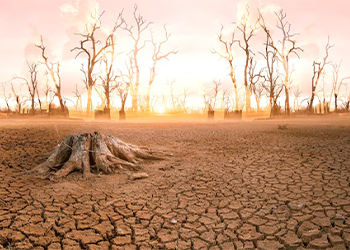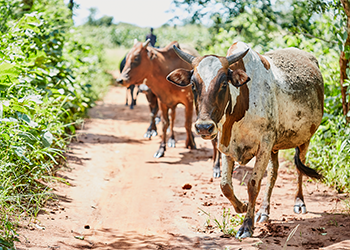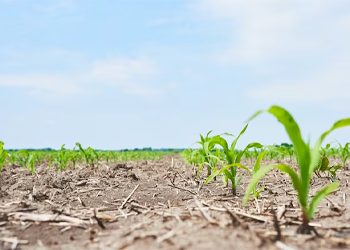
In the rural outskirts of Lukanda, Zambia, Memory Chilombo Chitengi embraces the dawn each morning, venturing out to her fields even before the first light graces the horizon. Amidst the serene backdrop of her homeland, she tends to the earth, nurturing it with care and dedication. For years, Memory, a resilient 34-year-old, has been the backbone of her large family, relying on the yield of her crops—maize, rice, and various vegetables—to sustain their livelihood.
However, this year paints a different picture. The relentless grip of drought, now declared a national crisis, casts a shadow over Memory's toil. Alongside a million other families in Zambia, she faces the grim reality of vanishing harvests and shattered dreams, as the parched land refuses to yield its bounty.
Yet, amidst the despair, there exists a beacon of hope—a humble legume known as the cowpea. Resilient to the harsh throes of drought, this crop, also known as the black-eyed pea, emerges as a lifeline for Memory and her community. With its ability to thrive in arid conditions, the cowpea offers a glimmer of salvation in the face of adversity.
Recognizing the potential of this resilient crop, organizations like Action Against Hunger are collaborating with farmers like Memory to cultivate cowpeas on a larger scale. Through innovative approaches and agricultural expertise, they seek to empower communities to adapt to the changing climate and mitigate the impact of food insecurity.
Dr. Charles Owubah, the visionary CEO of Action Against Hunger, echoes this sentiment during his recent visit to Memory's farm. Witnessing firsthand the transformative power of cowpeas, he envisions a future where data-driven solutions and sustainable practices pave the way towards a hunger-free world.
In the heart of Zambia's Western Province, where Memory resides, the effects of the drought loom large. With over 80% of the population living below the poverty line, the struggle for survival is palpable. Yet, amidst the adversity, cowpeas emerge as a source of sustenance and resilience, offering not just nourishment but also economic opportunities for those in need.
As Memory and her fellow farmers embark on this journey of adaptation, supported by initiatives like Action Against Hunger's long-term program, they stand poised to rewrite their narrative of hardship. With determination and perseverance, Memory embraces the challenge, knowing that with the right tools and support, she can forge a path towards a brighter future for herself and her family.
Comments (0)
Recent posts


Zambia cattle faming and the waste they ...
13 Mar 2024